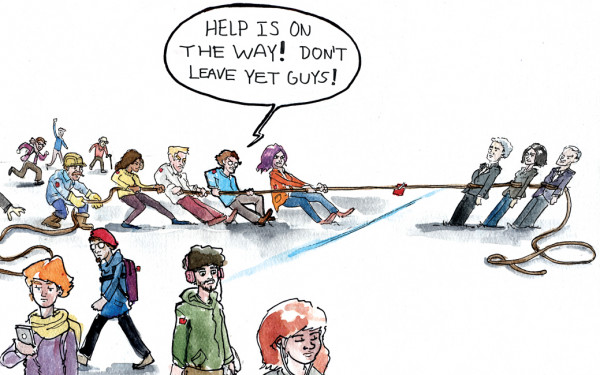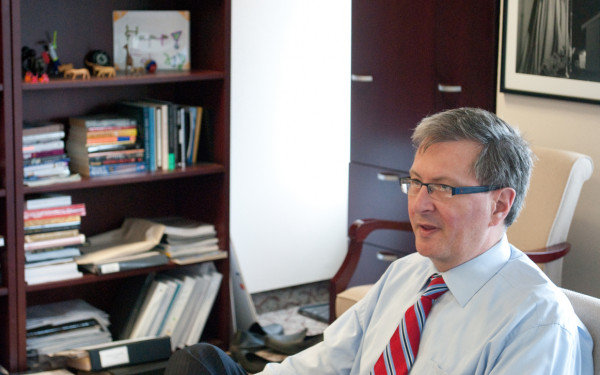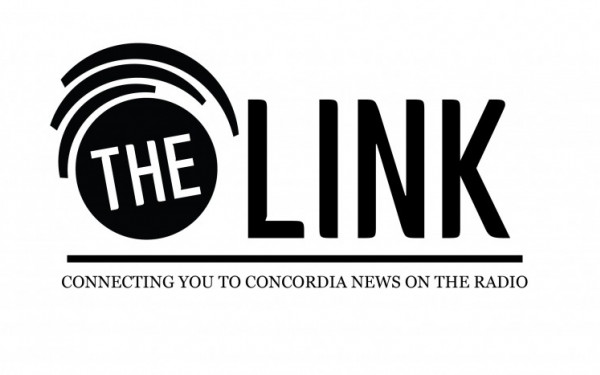Three JMSB Programs Will Face Tuition Hikes Starting Fall 2019
Quebec, Out of Province, and International Students Will Experience Hikes Over Three Years
The Board of Governors approved to hike the tuition of three John Molson School of Business programs, which will be imposed for the fall semester of 2019.
The programs that will be affected are under the Goodman Institute of Investment Management; and include the diploma and masters program in investment management and the masters of business administration in investment management.
Quebec and out of province students starting these programs in fall 2019 will be subjected to a tuition hike of $66,000. This will raise tuition from $18,000 to $22,000 per year. Tuition is set to increase over the next three years.
The hikes will continue for these students entering these programs in the fall of 2020 to $23,000, with another hike for those entering these programs in fall 2021, raising it to $24,000.
“We also ask for an increase for international students of 81 [thousand] for 2019,” said JMSB Dean and Professor of Business Technology Management Anne-Marie Croteau. “You see [tuition jump to] 84 [thousand] and 87 [thousand] for the following years.”
International students will see a more significant hike this fall, with an increase from $18,000 to $27,000 per year. Within a three year program this will result in a total hike of $81,000.
By fall 2020 international student tuition will escalate to $28,000 and continue to inflate to $29,000 by fall 2021.
“We haven’t increased the cost since 2012,” said Croteau. “There’s seven years of nothing regarding the tuition fees.”
Croteau said the cost to maintain these programs keeps increasing. Programs under the GIIM are taught in both Toronto and Concordia University.
Every other week professors have to commute between Toronto and Montreal to teach class in each city. Croteau said some of the hikes will help compensate the cost of growing rent in Toronto, along with the price of travel.
“Right now, if we keep going as we are, we would run a deficit,” she said. “We’re at the limit.”
Croteau said extra funding will also help provide more career development services for students, alongside more scholarships.
“In their proposal, the administration has provided no financial requirement for such a dramatic increase,” said Concordia Student Union General Coordinator Sophie Hough-Martin.
Banner against tuition fee increase hung up in
Concordia</a>'s hall building today. <br><br>This comes after information was released over tuition increase for the Goodman Insitute for Investment Management, which will be voted on at todays BoG meeting. <a href="https://t.co/1DAzBhiOXC">pic.twitter.com/1DAzBhiOXC</a></p>— Alexander Perez (dasalexperez) March 13, 2019
“This just demonstrates to me that with the deregulation of international student fees, the administration is willing to charge people—now that all international students will be in private programs essentially—to dramatically increase the cost of education for international students with no financial reason to,” she said.
Hough-Martin added that she believes the administration are “ testing the waters” by hiking tuition.
“It’s actually very scary to be honest,” added CSU External Affairs & Mobilization Coordinator Camille Thompson. “When you’re thinking of the deregulation of international student programs, it’s just privatizing this part of education, just making it a business.”
Thompson said this sets a precedent on tuition being raised in other departments and programs.
Students currently registered within these three JMSB programs will not face hikes and will continue to pay the annual fee of $18,000 until graduation.
With files from Alexander Perez
Correction: A previous version of this article stated Croteau’s figures in percentages. In fact, it is represented in thousands. The Link regrets this error.

_copy_900_574_90.jpg)




